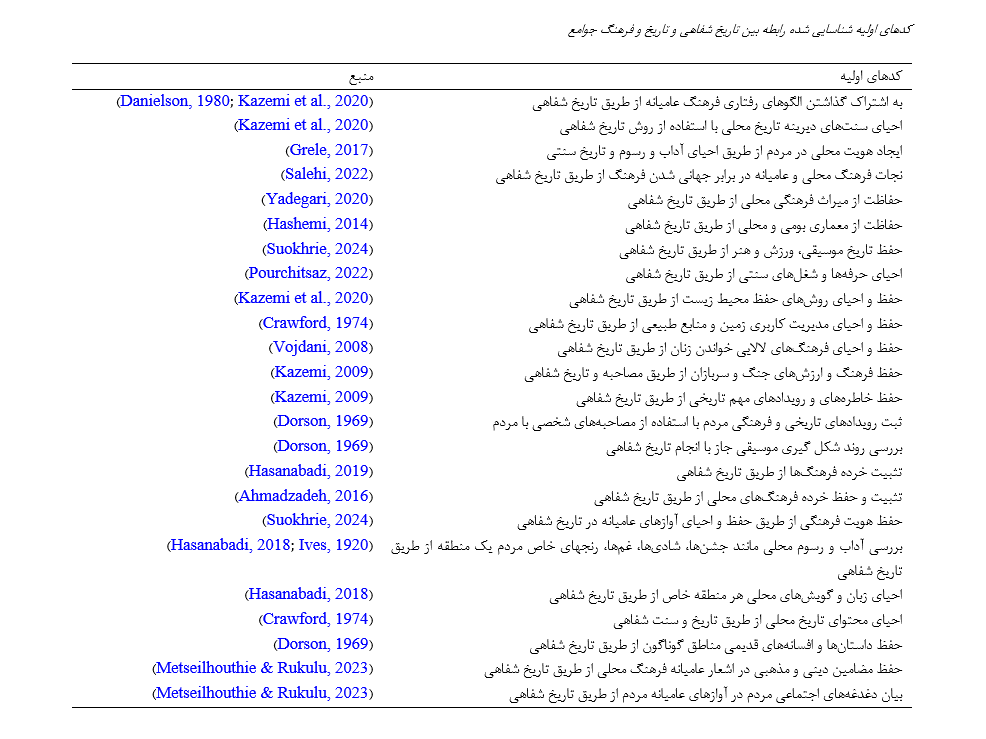Examining the Importance of Oral History in the Transmission of Folklore and Political Culture and Its Impact on the Local Culture of Communities in Iran
Keywords:
متون تاریخیAbstract
The present study aims to examine the importance of oral history in the transmission of folklore and its impact on the local culture of communities. The research methodology is descriptive-explanatory, and the research method is qualitative, employing the meta-study approach. Accordingly, the prevailing approach in this research is the method of secondary analysis. The target population includes all studies conducted on oral history, folklore, and local culture during the periods 1380–1403 (2001–2024) and 1960–2023. The sample size was determined based on a screening process involving the titles, abstracts, and full texts of 19 selected sources. The analysis of the selected sources reveals that oral history contributes to the preservation and enhancement of local culture in communities through several mechanisms: the formation of cultural identity, the preservation of local subcultures, the documentation of local history, the safeguarding of social identity, and the revival of local ecological culture.
Downloads

Downloads
Published
Submitted
Revised
Accepted
Issue
Section
License
Copyright (c) 2025 علیرضا گلستانی (نویسنده)

This work is licensed under a Creative Commons Attribution-NonCommercial 4.0 International License.







